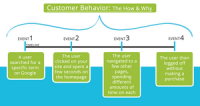-
Cyber protection technology moves from the lab to the marketplace
MIT Lincoln Laboratory’s technique to protect commodity software from cyberattacks has transitioned to industry and will soon be available as part of a security suite.
-
-
The U.S. needs an industrial policy for cybersecurity
Industrial policies are appropriate when market failures have led to the under-provision of a good or service. The cybersecurity industry’s growth has been held back for several reasons, including intractable labor shortages. Vinod K. Aggarwal and Andrew W. Reddie write in Defense One that both the United States and United Kingdom suffer from a documented shortage of skilled programmers and computer scientists working on cybersecurity issues, and the U.S. alone is projected to have a shortage of 1.2 million professionals by 2022, according to the Center for Strategic and International Studies. The market has also been hindered by so-called “information problems,” as firms are often not aware of their own vulnerabilities and avoid sharing information about data breaches given the reputation costs associated with disclosure. So what can the government do about it?
-
-
Hackers seek ransoms from Baltimore and communities across the U.S.
The people of Baltimore are beginning their fifth week under an electronic siege that has prevented residents from obtaining building permits and business licenses – and even buying or selling homes. These types of attacks are becoming more frequent and gaining more media attention. Every user of technology must consider not only threats and vulnerabilities, but also operational processes, potential points of failure and how they use technology on a daily basis.
-
-
WhatsApp's loophole reveals role of private companies in cyber-surveillance
Last month, WhatsApp’s latest security flaw was discovered, a flaw which allow governments to spy on dissidents, activists, and journalists. An Israeli cyber company is reportedly behind the loophole — and not for the first time.
-
-
Big tech surveillance could damage democracy

Data is often called the oil of the 21st century. The more tech companies know about their users, the more effectively they can direct them to goods and services that they are likely to buy. The more companies know about their users, the more competitive they are in the market. But this business model – what I consider spying machines – has enormous potential to violate civil liberties. Big tech is already being used abroad to enhance the power of repressive regimes, as my work and others’ has shown.
-
-
Scam contractors preying on victims of natural disasters
Following a natural disaster or strong storm like Hurricane Florence, there is usually a second wave of potential destruction – scam artists looking to line their pockets. “After any major weather-related incident, insurance adjusters and contractors swarm the affected area and, unfortunately, some are looking to take advantage of those in distress,” says one expert.
-
-
Silicon Valley’s scramble for China
In August 2012, China launched one of its first major “smart city” projects for the remote oil town of Karamay in the autonomous province of Xinjiang. “Information technology is not just about technology. It should be integrated with all aspects of life in our city and make people’s lives more convenient,” said then Karamay Mayor Chen Xinfa. Nafeez Ahmed writes in Coda Story that A report released last year by subsidiary Deloitte China, titled “Super Smart City: Happier Society with Higher Quality,” celebrates China’s drive to build “super smart cities” which integrate data across services like health care, transport, education and public safety. Billed by Deloitte as a virtual utopia, China’s smart cities represent the biggest and most intrusive surveillance architecture ever built by any single nation, according to experts and analysts.
-
-
Huawei and the U.S.-China supply chain wars: The contradictions of a decoupling strategy
In two dramatic policy announcements last month, the Trump administration effectively barred U.S. companies and government agencies from buying telecommunications equipment or services from – or selling any components to – Chinese technology champion Huawei. President Donald Trump signed a broadly phrased executive order restricting any transaction of information communication technology (products or services linked to a “foreign adversary” deemed to pose an “unacceptable risk to the national security of the United States”), while the Commerce Department placed Huawei the company and its affiliates on its Entity List – a designation that requires U.S. firms and foreign companies selling products that contain American components to acquire a license from the U.S. government before trading with a blacklisted company. Darren Lim and Victor Ferguson write in War on the Rocks that these moves represent the latest steps towards “decoupling,” the unwinding of the interlocking supply chains and trading relationships that have made the U.S. and Chinese economies so deeply interdependent over the past two decades. Whether deliberate or not, the restrictions on Huawei have prompted some to argue that we are witnessing the collapse of an open, global market for information communication technology goods and services. Others cite the new policies as the latest confirmation of an emerging “economic” or “technology” Cold War between China and the United States.
-
-
Exelon / Clinton nuclear officers ratify their first contract with NUNSO/LEOSU

Clinton nuclear security officers working for Exelon at Clinton Power Station have voted on 8 May 2019, to ratify their first contract with the National Union of Nuclear Security Officers NUNSO / LEOSU.
-
-
The 5G fight is bigger than Huawei
The latest salvos in the Trump administration’s campaign against Huawei may prove, at best, to be a Pyrrhic victory—or, at worst, directly undermine U.S. interests and objectives. At the moment, it remains unclear how the recent executive order, which creates sweeping authorities to bar and exclude companies or technologies linked to a “foreign adversary” from the United States, and the addition of Huawei to the government blacklist known as the Entity List will be implemented in practice. Elsa B. Kania writes in Foreign Policy that it is not too late for U.S. President Donald Trump to recalibrate toward the smarter approach needed for such a complex challenge. In the process, the U.S. government should also pursue more proactive policies that concentrate on ensuring future American competitiveness in 5G, the fifth generation of mobile networks.
-
-
China raises threat of rare-Earths cutoff to U.S.
With a simple visit to an obscure factory on Monday, Chinese President Xi Jinping has raised the specter that China could potentially cut off supplies of critical materials needed by huge swaths of the U.S. economy, underscoring growing concerns that large-scale economic integration is boomeranging and becoming a geopolitical weapon. Keith Johnson and Elias Groll write in Foreign Policy that Beijing could slam every corner of the American economy, from oil refineries to wind turbines to jet engines, by banning exports of crucial minerals.
-
-
Profitable climate change solution
A seemingly counterintuitive approach – converting one greenhouse gas into another – holds promise for returning the atmosphere to pre-industrial concentrations of methane, a powerful driver of global warming.
-
-
Google cuts Huawei access to Android software updates
Google said on Sunday it was rescinding Huawei’s license to use Google’s mobile phone operating system Android, and Google services such as Google maps and YouTube. The move will force the Chinese technology company to rely on an open-source version of the software. The move follows a presidential executive order prohibiting American companies from using telecommunications equipment made by “foreign adversaries” viewed as posing a threat to U.S. national security.
-
-
Why Huawei security concerns cannot be removed from U.S.-China relations

Huawei’s role in building new 5G networks has become one of the most controversial topics in current international relations. The U.S. is exercising direct diplomatic pressure to stop states from using the Chinese telecoms giant. The U.S. government regards Huawei as a clear and present danger to national security and argues that any ally opting for Huawei will compromise vital intelligence sharing among these countries in the future.
-
-
Administration’s immigration plan prioritizes skills, merit over family
President Donald Trump is scheduled to announce his long-awaited proposal on immigration Thursday, a plan that aims to move the immigration approval process away from family-ties and humanitarian needs. Administration official said the plan will bolster border security and create a merit-based system, insisting that it is a “competitiveness issue.”
-
More headlines
The long view
Factories First: Winning the Drone War Before It Starts
Wars are won by factories before they are won on the battlefield,Martin C. Feldmann writes, noting that the United States lacks the manufacturing depth for the coming drone age. Rectifying this situation “will take far more than procurement tweaks,” Feldmann writes. “It demands a national-level, wartime-scale industrial mobilization.”
Trump Is Fast-Tracking New Coal Mines — Even When They Don’t Make Economic Sense
In Appalachian Tennessee, mines shut down and couldn’t pay their debts. Now a new one is opening under the guise of an “energy emergency.”
Smaller Nuclear Reactors Spark Renewed Interest in a Once-Shunned Energy Source
In the past two years, half the states have taken action to promote nuclear power, from creating nuclear task forces to integrating nuclear into long-term energy plans.
